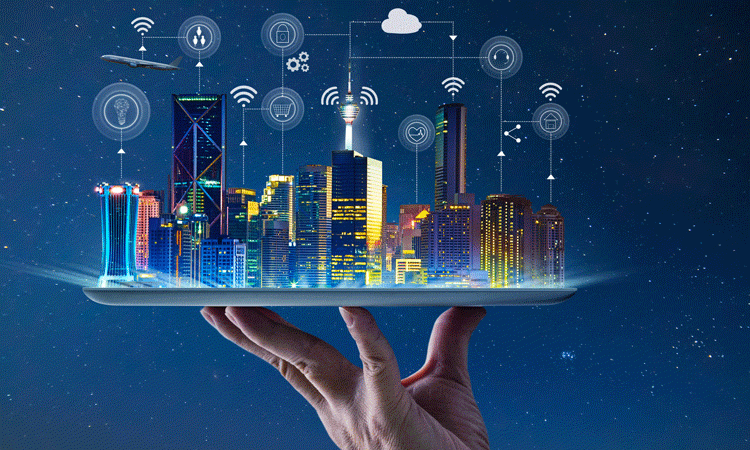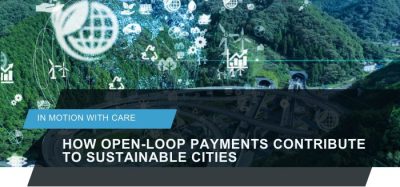Smart Cities: Capitalising on emerging data
- Like
- Digg
- Del
- Tumblr
- VKontakte
- Buffer
- Love This
- Odnoklassniki
- Meneame
- Blogger
- Amazon
- Yahoo Mail
- Gmail
- AOL
- Newsvine
- HackerNews
- Evernote
- MySpace
- Mail.ru
- Viadeo
- Line
- Comments
- Yummly
- SMS
- Viber
- Telegram
- Subscribe
- Skype
- Facebook Messenger
- Kakao
- LiveJournal
- Yammer
- Edgar
- Fintel
- Mix
- Instapaper
- Copy Link
Posted: 11 April 2017 | Vernon Everitt (TfL) | No comments yet
Consumer technology has radically changed the way people live their lives. Vernon Everitt, Managing Director for Customers, Communication and Technology at Transport for London (TfL) and Board Member of the Urban Transport Group’s Smart Futures group, explains here that the pace of change is phenomenal, and the potential for the transport industry is enormous.


On road networks, in the space of just a few short years, drivers have moved away from purchasing printed maps; to purchasing satnavs that required regular updates; to replacing satnavs with free apps on their smartphones that show traffic conditions in real-time and, increasingly, predicting what conditions will be like later in the day.
In London we are constantly looking for ways to improve the service we deliver, including simpler ticketing and better information provision. As well as providing information about the services we run ourselves, we offer developers free and open access to our data. That approach has created a community of more than 11,000 developers, powering more than 600 apps. Roughly 42% of Londoners now use those apps to navigate their way around the capital, adding to our own direct information channels.
Transport authorities have always gathered rich and complex data. We once collected this manually at great expense and with a significant time-lag. We now do so in real-time. If we ask the right questions of data, we can transform the way in which people travel.
Data can help us obtain every ounce of capacity from our existing transport networks, helping to spread peak demand on public transport and roads and encouraging even more people to leave their cars at home and take public transport, walk or cycle.
For example, in a recent trial on the London Underground network we used de-personalised Wi-Fi data to better understand how customers move through and between stations. The early results of this trial showed a variety of journey patterns, which will help us plan and operate the London Underground network more effectively for our customers; provide better information; reduce congestion; and generate increased revenue to reinvest in transport services.
It can also help us to meet customers’ requirements for information about their journeys. In addition to having staff available to help, older and disabled people rely on having real-time information to give them confidence to use the transport network. For some, not knowing the status of lifts or other services means they do not travel at all.
It is, of course, vital that wheelchair users know if a station is step-free and, if it is, whether the lifts are working at that moment. We are working to ensure that apps and digital solutions help meet the demand for more detailed accessible travel information in order to support the strong staff presence on the network.
Urban Transport Group members across the country are using the data they generate to improve services, rather than getting lost in data for data’s sake. It is being used for a clear purpose – to improve delivery for customers and help with investment decisions.
Our ‘Smart Futures’ group is focused on some of the key questions, including:
- Who is best placed to hold, develop and share our data?
- How do we protect customers’ privacy?
- How do we ensure the data is of the highest quality?
- What skills do we need to make the most of the data we generate?
Our Smart Futures network is bringing together the right people to answer the strategic and technical questions raised by big data, autonomous vehicles and other advances in technology.
Together we are seeking to establish the principles for transport authorities when responding to disruptive technology. This begins with the understanding that it isn’t the technology that matters, but the outcome that it will deliver.
Through close co-operation and new partnerships with the technology and other sectors, we will seek to ensure technological change makes travel simpler and easier for everyone, while protecting their privacy. By learning from each other, we will look for opportunities to adopt the common standards and regulatory frameworks that will help us engage with business across the country.
We will also work with each other to make sure that technological change benefits our local economies and environment, and ensure that it doesn’t leave people behind.
One thing is certain: harnessing technology will never actually be ‘finished’. By working together and taking advantage of these opportunities, we can take great strides in making sure it benefits transport users across the country.







